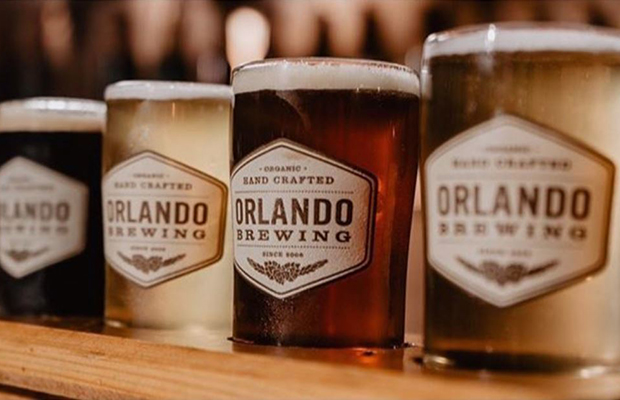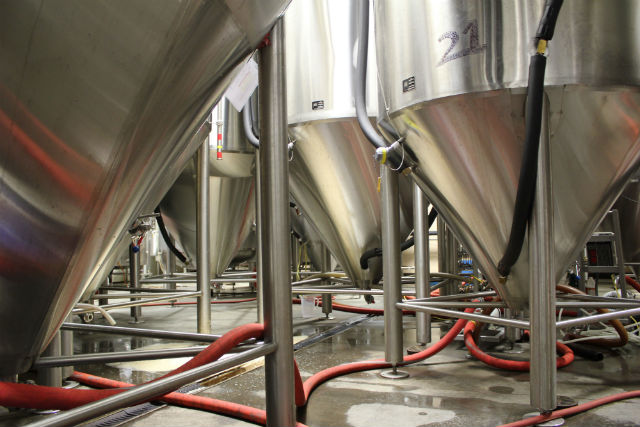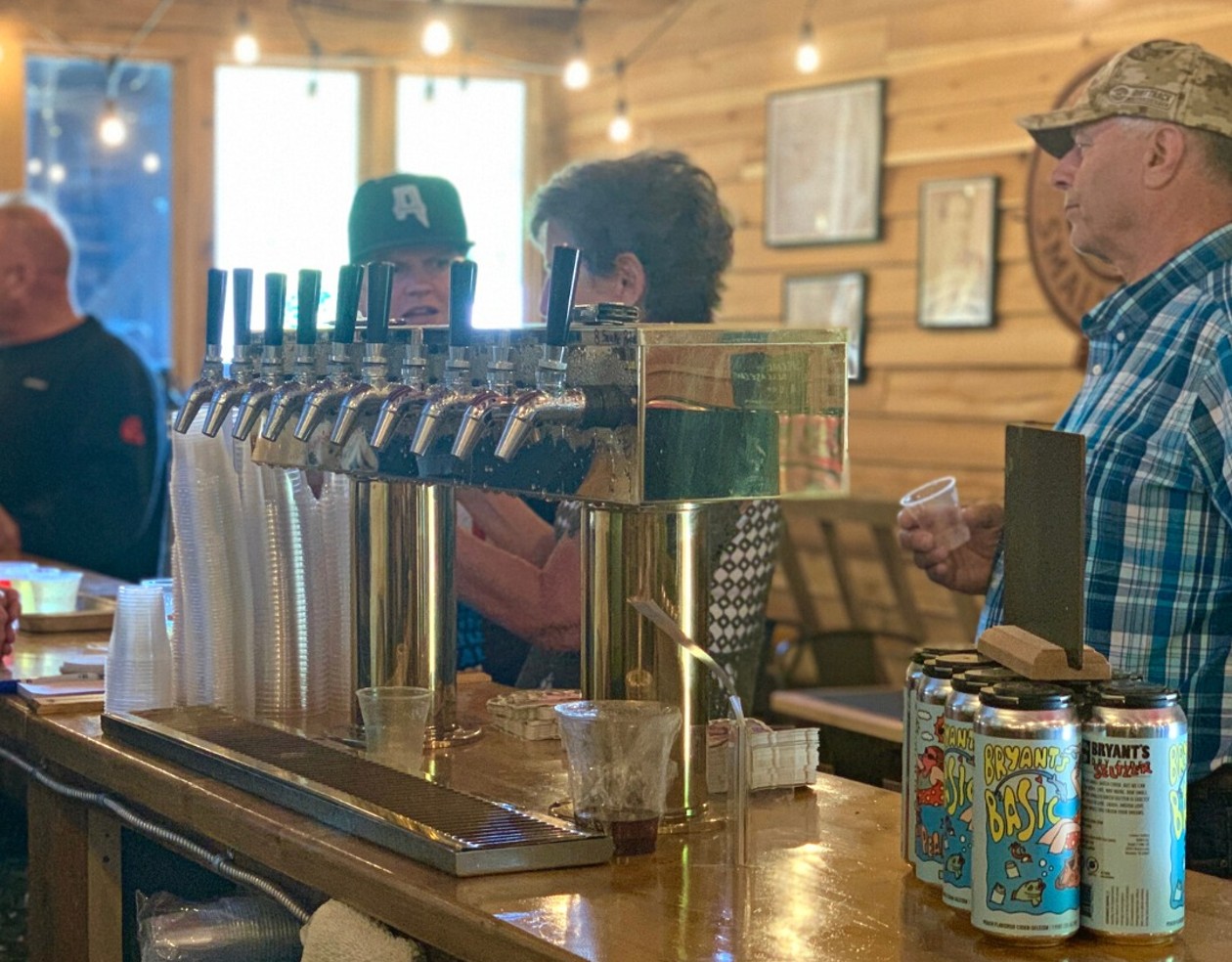
Organic brewing is tough. It’s harder to track down USDA-certified organic grains and hops, it costs more and it’s such a rarity that consumers may not understand the meaning.
Yet, for almost 15 years, Orlando Brewing is chugging away as one of the only organic-certified breweries in the country.
The idea sprung from the mind of Ed Canty, who had worked at the now-defunct Ybor Brewing Company and contract brewed Wolaver’s Fine Organic Ales in the late 90s.
After a misfire followed by delays from local highway construction in opening the brewery starting in 2004, John Cheek and Canty — who helped start the Florida Brewers Guild — worked on a concept for brewing, not just Reinheitsgebot, but organic as well. Not a small task.
Ingredients as such were scarce while costs were almost triple.
”We basically took over my garage, painted the back of a roll-up door and used it as a chalkboard to determine how we wanted to proceed,” recalls Cheek, who spoke to Brewer recently about the 15-month wait he and Canty had while waiting to open the second location picked for the Orlando Brewing Co. “We decided that being organic was not only good for the environment but good for us.
“When we only got into it, one of the things we realized very, very quickly was that people don’t buy organic beer, they buy beer that tastes good. So the biggest issue that we have was convincing people that we had a better beer and it tastes better. It’s cleaner. It’s better for you.”
Canty said being exposed to Wolaver’s helped him taste the difference and “feel this is how we had to do it.
”The idea about being organic back then … in the brewing industry you have two things: push strategy or hold strategy. And we weren’t going to push the organic thing on any of them. We were just going to slowly pull on that.”
Canty said Orlando Brewing has not had to raise prices for 14 years.
“We raised them a little bit on the retail side,” he noted. “As far as our distributors and whatnot, we haven’t raised our prices.”
But yes, there is a margin difference because of the cost. One that Orlando tries not to put on the consumer.
“We only have a certain amount of grains and hops that we can find available that are USDA-certified organic,” Canty said. “That means a lot to the farmers because they have to go through a hell of a lot to grow that stuff. And yes, it costs more.
“So we have a smaller variety of grains and hops that are available and they can cost two to three times as much as the non-organic grain, which is much more widely available.”




Be the first to comment